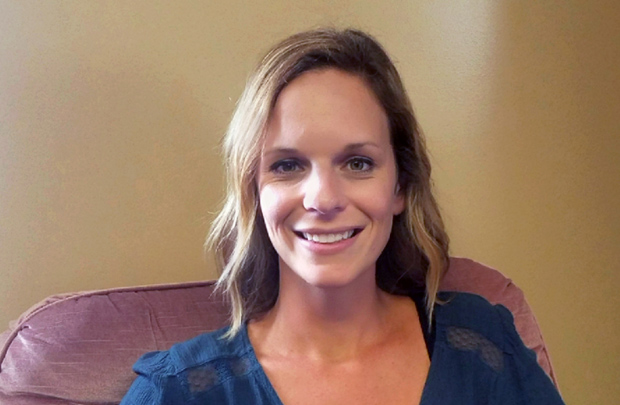
Laura Wilson is a foster care treatment coordinator in West Virginia. A father who works with her suggested that we profile Laura on our blog. The father wrote:
“Laura always goes above and beyond for all her kids in care. We have four of her kids right now and she is always is fighting for them. Our little girl loves to read, so Laura brought over books she got for her just because. She is always going above and beyond for her kids… We just love her.”
What attracted you to social work?
I always knew I wanted to go into a field where I was helping others, because I have a lot of empathy for people. I grew up in a big family, and I was always the helper—the one people came to when they needed something.
It took me time to learn how to channel that into a career. But once I was introduced to the field of social work, I knew it was for me. That was 12 years ago, and I’ve been fortunate to work for same agency ever since.
How do you describe your job?
I consider myself first and foremost an advocate for kids. When they need something, or I see something that’s not in their best interest, I am that voice for them—in their foster home, in their school, in the courtroom.
And… I do a lot of paperwork—probably more than most people realize. But a lot of the time, the paperwork gets put on the back burner. Because being there for the children and the families is the priority.
Why do you think this father suggested that we profile you?
I think this family recognized that this work is in my heart. I feel passionate about advocating for kids who don’t have a voice, especially the little ones who can’t speak for themselves. I care deeply about them and do anything I can to help them.
The hardest part of this job is when I’ve done the fighting, and decisions are made that I do not believe are best for the child. Those are the worst days.
What are the best days? What’s kept you doing this work for 12 years?
The best days are days I see that everything is going right for the child—when I see the happy ending. Whether that is that the birth family has made the changes necessary to provide a healthy and safe environment for the child to come home, or a child is adopted by a foster family and you see their wounds starting to be healed. Even seeing small successes in children’s lives—better grades on a report card or a child’s self-esteem improve—makes a great day.
Staying focused on positive outcomes like these and on the good that I can do is what keeps me doing this work. Also, my colleagues, who mentor and support me—and let me cry when I need to.
You work with a lot of interns. What advice do you give them?
I am a strong believer in the importance of advocacy. I tell people entering this field that they should never hesitate to speak up and say what they feel is right. Sometimes it’s hard, and it definitely takes time and experience to speak up effectively.
I also tell them that no matter what they do, they will make mistakes along the way. And they will learn from them.
Are there mistakes that stand out in your mind that you’ve learned from?
When I came into the job, some of the things I was seeing made me angry. When I didn’t understand or disagreed with a decision or direction, I didn’t respond well. It’s taken me a long time to learn to communicate with people who I may not agree with in a way that they are hearing me and I am getting my point across.
What advice do you frequently give to the families you work with?
Be patient with children, and don’t take things personally.
A lot of times, parents think they are doing something wrong when a child does not show quick signs of progress. But people need to understand that it takes time to help children heal from past trauma. Change does not happen overnight. It may take time—more time than the child has just lived through—for them to heal.
But they do heal. And foster families play an integral role in that process. When they are committed to children and trust the support and services we provide, these parents see children not only heal but also grow.